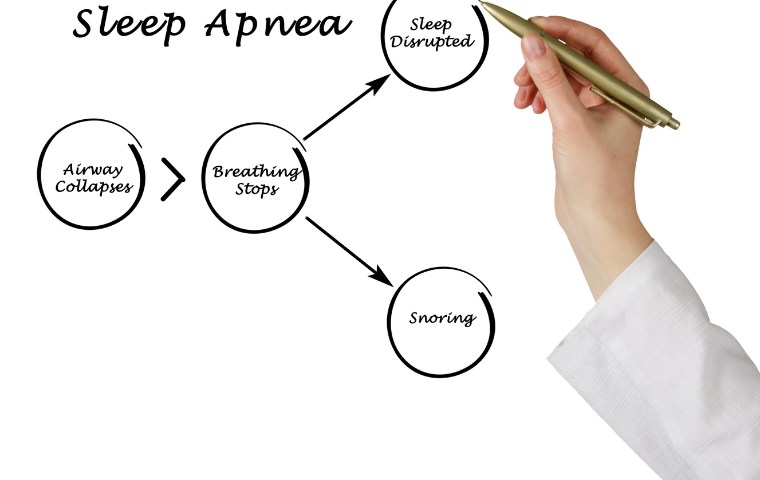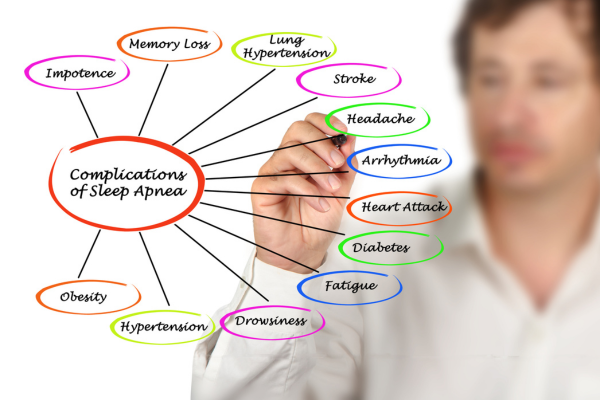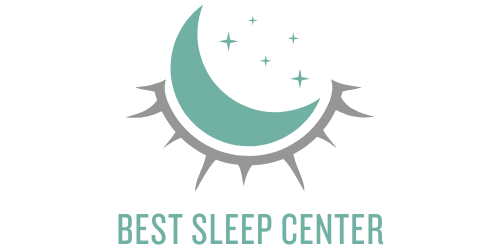Can you have sleep apnea without snoring? It’s a puzzling thought, isn’t it? You might be scratching your head, wondering how on earth that could be possible. Well, fret not my sleepy friend because today I’m here to shed some light on this mysterious topic.

So, what’s in it for you? By the end of this article, you’ll have all the juicy details about sleep apnea and whether or not snoring is a prerequisite. No more tossing and turning with confusion at night – we’re diving deep into the realm of slumber science to quench your curiosity.
Now, let’s address the elephant in the room – your pain points. If you suspect that you or someone you know has sleep apnea but they don’t fit the classic snoring stereotype, fear not! We’re going to unravel this riddle together.
I understand how frustrating it can be when information feels out of reach or doesn’t quite match up with your experiences. That stops today as we embark on an enlightening journey through sleep disorders.
You see, expertise is our middle name (well, not literally). We’ve dove into countless studies and consulted experts in order to bring you accurate information about sleep apnea and its sneaky tendencies. Rest assured knowing that we’ve done our homework so that you can rest better at night – pun intended!
Now listen up because here comes one important detail: This article isn’t just for everyone; it’s specifically tailored to those who are curious about their own snore-less nights yet suspect something fishy may still be happening during slumber hours. If that sounds like “you,” then buckle up because we’re about to go full-throttle into deciphering this perplexing condition.
But wait! Before we dive right in (not literally – no scuba gear required), let’s establish a little rapport. I want you to feel like we’re old friends, chatting over a cup of warm cocoa on a chilly evening. We’re here to make the science behind sleep apnea as approachable as possible.
Think of me as your trusty guide through this sleep maze – knowledgeable but also relatable, because hey, we all need some humor and wit when it comes to discussing our Zzzs.
So grab your favorite blanket and settle in – together, we’ll unravel the mysteries of sleep apnea without snoring! Prepare yourself for an emotional rollercoaster filled with evocative language and fascinating discoveries. Trust me, by the end of this journey, you’ll breathe easy knowing whether or not snores are essential for sleep apnea. Let’s get started!
Can You Have Sleep Apnea Without Snoring?
Sleep apnea is a common sleep disorder that affects millions of people worldwide. When we think of sleep apnea, we often associate it with snoring. However, it may come as a surprise to learn that you can have sleep apnea without snoring.
While snoring is a common symptom of sleep apnea, not everyone who has sleep apnea snores, and not everyone who snores has sleep apnea.
Understanding Sleep Apnea
To begin our exploration, let’s define sleep apnea. Simply put, it is a condition characterized by repeated breathing interruptions during sleep. These interruptions are caused either by the collapse of throat tissues (known as Obstructive Sleep Apnea or OSA) or by a neurological dysfunction where the brain fails to signal breathing muscles (known as Central Sleep Apnea or CSA).
The prevalence of sleep apnea in adults is quite significant, with an estimated 20% of adults experiencing some form of this condition at some point in their lives. OSA is more prevalent than CSA and often results in snoring due to the blockage caused by collapsed throat tissues.
The Link Between Sleep Apnea and Snoring
Snoring occurs when air struggles to pass through a narrow or obstructed airway during sleep. This can be due to various factors such as excess weight, structural abnormalities in the nose or throat, alcohol consumption before bedtime, or muscle relaxation during deep REM stages.
In cases where someone has OSA, there is usually an obstruction in their airway which leads to snoring as they attempt to breathe through the partially blocked passage. However, it’s important to note that not all individuals with OSA experience noticeable snoring.
There are cases where individuals who have never had a history of snoring suddenly develop symptoms associated with OSA-like daytime sleepiness and gasping during sleep. This phenomenon is called “Silent Sleep Apnea,” and it can be perplexing to both the person experiencing it and their loved ones.
Symptoms of Sleep Apnea
While snoring is a common symptom associated with sleep apnea, there are other signs that may indicate the presence of this condition. These symptoms include:
Loud, Chronic Snoring
One of the most recognizable symptoms of sleep apnea is loud, chronic snoring. This is often more prominent in individuals with Obstructive Sleep Apnea (OSA) due to the physical blockage in the airway.
Gasping or Choking Sounds During Sleep
People with sleep apnea often make gasping or choking sounds during sleep. This happens when breathing resumes after a pause, causing the person to gasp for air.
Morning Headaches
Individuals with sleep apnea may frequently wake up with headaches. This is due to the low oxygen levels in the blood caused by the intermittent breathing pauses, leading to the dilation of blood vessels and resulting in a headache.
Daytime Fatigue or Excessive Sleepiness
Sleep apnea can lead to poor sleep quality, resulting in daytime fatigue or excessive sleepiness. This can affect productivity and overall quality of life.
Difficulty Concentrating or Remembering Things
Sleep apnea can affect cognitive functions, leading to difficulty concentrating or memory problems. This is often due to the lack of restful sleep, which is essential for cognitive functions like memory consolidation.
Irritability or Mood Changes
Sleep deprivation caused by sleep apnea can lead to mood changes, including irritability, anxiety, or depression. These mood changes can affect interpersonal relationships and overall mental health.
Decreased Libido
Sleep apnea can also lead to a decreased libido. This could be due to a combination of physical exhaustion from lack of quality sleep and hormonal changes caused by chronic sleep deprivation.
Risks Associated with Sleep Apnea

If left untreated, sleep apnea can increase the risk of developing other health conditions such as:
High Blood Pressure
Sleep apnea can contribute to high blood pressure or hypertension. The sudden drops in blood oxygen levels that occur during sleep apnea episodes increase blood pressure and put strain on the cardiovascular system. Over time, this strain can lead to hypertension, a condition that can further exacerbate sleep apnea symptoms and lead to other serious health conditions.
Heart Disease
The strain on the cardiovascular system caused by sleep apnea can also increase the risk of heart disease. The oxygen deprivation and increased blood pressure associated with sleep apnea can lead to a higher risk of heart attack, atrial fibrillation, and stroke.
Stroke
Sleep apnea is a risk factor for stroke, a condition where blood supply to part of the brain is interrupted or reduced. The oxygen deprivation and blood pressure spikes associated with sleep apnea can contribute to the conditions that cause a stroke.
Diabetes
There is a strong link between sleep apnea and type 2 diabetes. The disruptions in sleep patterns and the stress on the body caused by sleep apnea can lead to insulin resistance, a precursor to diabetes.
Obesity
Sleep apnea and obesity often go hand in hand. Obesity is a risk factor for sleep apnea, and sleep apnea can also contribute to weight gain. The disrupted sleep patterns can affect metabolism and appetite regulation, leading to weight gain and further exacerbating sleep apnea symptoms.
Depression
Sleep apnea can also contribute to mood disorders such as depression. The chronic sleep deprivation and constant fatigue associated with sleep apnea can negatively affect mood and lead to depression.
The repeated interruptions in breathing during sleep put strain on the cardiovascular system and disrupt normal oxygen supply to vital organs – leading to potentially serious consequences for one’s health.
Treatment Options for Sleep Apnea
Fortunately, there are several effective treatment options available for managing sleep apnea:
1. Positive Airway Pressure (PAP) therapy: This involves wearing a mask connected to a machine that delivers air pressure into your throat to keep your airway open while you’re sleeping.
2. Oral appliances: These dental devices help reposition the jaw or tongue to prevent airway obstruction during sleep and are suitable alternatives for those who cannot tolerate PAP therapy.
3. Surgical treatments: In severe cases where non-invasive treatment methods fail to provide relief, surgical interventions may be considered such as removing excess tissues from the throat or realigning structural abnormalities.
4. Lifestyle changes: Adopting healthy habits like maintaining a healthy weight, avoiding alcohol before bedtime, quitting smoking, and sleeping on your side can significantly reduce symptoms and risk factors associated with sleep apnea.
Dentists in Sleep Apnea Treatment
Dentists can play a significant role in the identification and treatment of sleep apnea. With their unique position in healthcare, they can observe signs of this condition during regular dental visits and provide alternative treatment options.
Identification of Sleep Apnea
During regular dental visits, dentists may observe signs or indications of sleep apnea. These can include observations such as worn tooth surfaces (a sign of grinding, which can be associated with sleep apnea), a small jaw, a large tongue, or a high amount of tissue in the back of the throat. If a dentist suspects sleep apnea, they can refer the patient to a sleep specialist for further investigation and diagnosis.
Providing Oral Appliances
Dentists can also provide treatment for sleep apnea in the form of oral appliances. These devices, similar to sports mouthguards, are custom-fitted and worn during sleep. They work by repositioning the lower jaw and tongue to keep the airway open. This can be an effective treatment option for some patients, particularly those with mild to moderate Obstructive Sleep Apnea who cannot tolerate Positive Airway Pressure (PAP) therapy.
Importance of Regular Dental Visits
Regular dental visits are not only important for oral health but can also be instrumental in identifying sleep disorders like sleep apnea. Dentists are often the first healthcare professionals to spot the signs of sleep apnea, highlighting the importance of regular dental check-ups.
If you suspect that you or someone you know might have sleep apnea, it’s important to seek medical attention and undergo proper diagnosis and treatment. Ignoring the condition can lead to serious health consequences down the road.
How Mattresses Can Help Sleep Apnea
Sleep apnea can significantly disrupt your sleep quality and overall health. However, the right mattress can make a world of difference. Saatva and Dreamcloud are two excellent solutions that can help alleviate the symptoms of sleep apnea.
The Saatva mattress, known for its luxury hybrid innerspring model, provides a perfect balance of comfort and support. It features a coil-on-coil construction that promotes airflow, preventing overheating during the night. This mattress also offers a high degree of spinal alignment, which is crucial for individuals with sleep apnea. The Saatva comes in three firmness levels – plush soft, luxury firm, and firm – catering to a wide range of sleep preferences.
Dreamcloud mattress is a luxury hybrid mattress that combines memory foam and innerspring coils. It offers excellent pressure relief, which is beneficial for side sleepers who often experience discomfort in their shoulders and hips. The Dreamcloud mattress also features a cashmere blend cover that provides a soft and breathable surface, enhancing your sleep experience.
Both Saatva and Dreamcloud mattresses are designed to provide optimal comfort and support, potentially improving sleep quality for individuals with sleep apnea. However, it’s always recommended to consult with a healthcare professional before making any changes to your sleep environment if you have a diagnosed sleep disorder.
FAQs
Can Sleep Apnea Occur in Children?
Yes, sleep apnea can occur in children, although it’s more commonly diagnosed in adults. In children, sleep apnea can be caused by enlarged tonsils or adenoids, obesity, or certain medical and neurological conditions. Symptoms in children may include snoring, restless sleep, bedwetting, and behavioral issues.
Can Weight Loss Cure Sleep Apnea?
Weight loss can significantly help manage sleep apnea symptoms, especially in individuals who are overweight or obese. Excess weight can contribute to airway obstruction, a common cause of sleep apnea. While weight loss may not completely cure sleep apnea, it can reduce the severity of symptoms and improve overall health.
Can Sleep Apnea Cause Long-Term Health Issues?
Yes, if left untreated, sleep apnea can lead to long-term health issues. These include high blood pressure, heart disease, stroke, diabetes, and depression. Therefore, it’s crucial to seek medical attention if you suspect you have sleep apnea.
Can You Self-Treat Sleep Apnea?
While lifestyle changes such as weight loss, avoiding alcohol before bedtime, and changing sleep positions can help manage sleep apnea symptoms, it’s important to seek professional medical advice. Sleep apnea is a serious condition that requires a proper diagnosis and treatment plan.
Conclusion
Snoring isn’t always indicative of sleep apnea. This common sleep disorder can occur without snoring, leading to confusion for those experiencing its symptoms.
With early detection and intervention from healthcare professionals such as dentists, individuals with sleep apnea can find relief through effective treatment options – improving their quality of life and overall well-being.
